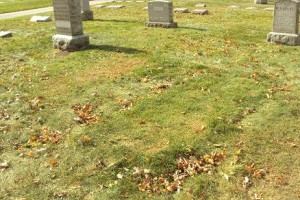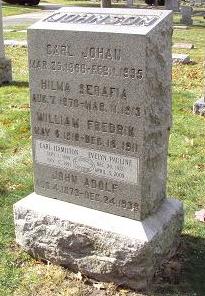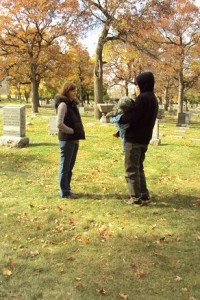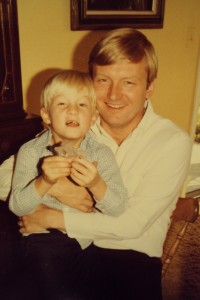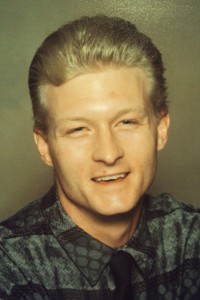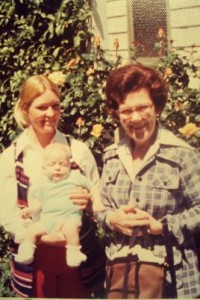During the year since Nate died, I’ve visited the cemetery four times. Today we went again, but this time it wasn’t just to stand and think, or even to talk about Nate. Our purpose was to decide on a grave marker. Not to have taken care of this important task in 12 months borders on neglect. The words “unmarked grave” hint that nobody cares, which is the opposite of reality. We care deeply.
Linnea, with 9 month old Micah Nathan, had come north from Florida to be with us this week as we pass Nate’s death date for the first time (November 3). The two of them, plus Nelson and I, drove the 95 miles to Rosehill Cemetery in Chicago and met with a monument representative to discuss the details. But first, the four of us went to Nate’s grave and stood next to the still-fresh-looking strip of sod on the spot where he’s buried.
In the many visits our extended family has made to this set of ten graves in past decades, important words have been spoken, sometimes on balmy spring days and other times into icy winter winds. Small talk and silly chatter have no place in cemeteries, and we’ve found that people either say something valuable or nothing at all. Today was no different.
While Micah crawled among the oak leaves, Nelson, Linnea and I talked about Nate, their “Papa”, and what a dynamic husband and father he was. He worked hard for our benefit and served us rather than himself, 100% of the time. Because of his debilitating back problems and the dreadful cancer coming on top of that, we acknowledged that God’s decision to remove him from this world was a first-rate one…. for Nate. For the rest of us, it was last choice, bringing a set of adjustments we’ll probably never stop making.
As we talked about headstone design, we studied other markers. Letters and numbers carved in stone told sad stories: a 20 year old wife, a two year old child, a new baby. Although our sorrow is great, it’s virtually universal.
Even on our family’s headstone, the marker that’s been there since 1911 and lists seven relatives including my parents, the dates reveal great pain: William, a baby who died of pneumonia at 20 months, and his mother, my grandmother, dying of TB about a year later, leaving three young children. Death touches us all.
Before we left, we all prayed, thanking God, through tears, for Nate and for the Lord’s tenderness toward us. I thought of Memorial Day next spring, when our whole family will return to these graves to honor those who’ve gone before us, including Nate. It was uplifting to think of children in future generations who may continue the tradition, coming to Rosehill to stand at the family plot and study the headstones. We prayed for them, too, that their hearts would turn toward the One who has the keys to life, death and eternity.
We decided Nate’s grave marker will match the Johnson stone already in place, and will have my name on it, too, as an indication that all ten graves are unified in one earthly family.
One day we’ll all be unified as a heavenly family, too, far from the cemetery, alive and well in our heavenly home.
“In keeping with [God’s] promise we are looking forward to a new heaven and a new earth, the home of righteousness.” (1 Peter 3:13)

